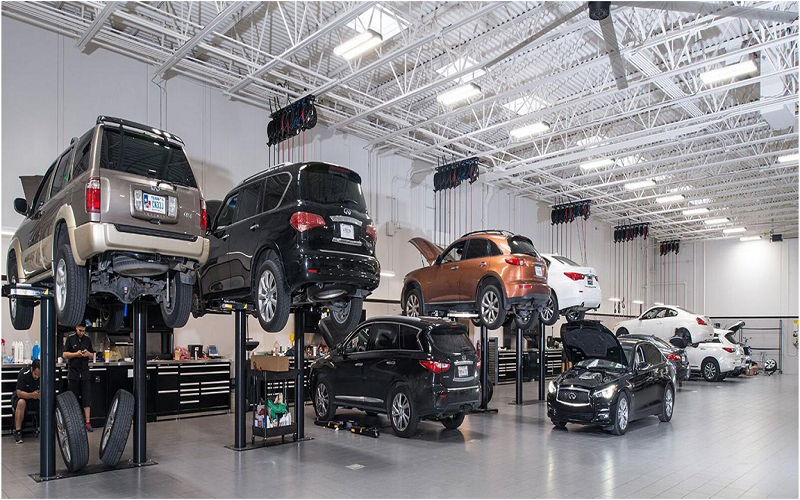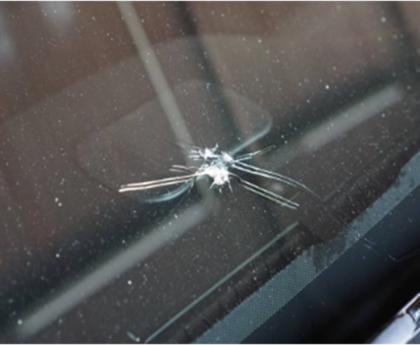Introduction to Auto Repair Shops
Auto repair shop serve as the lifeline for maintaining vehicles’ health and functionality. They are essential hubs where vehicles receive diagnostics, maintenance, and repairs to ensure optimal performance and safety on the road. This comprehensive exploration delves into various facets of auto repair shops, encompassing their functions, services, challenges, advancements, and future prospects.
Understanding the Role of Auto Repair Shops
Auto repair shops play a pivotal role in the automotive industry, catering to the diverse needs of vehicle owners. They serve as the primary destination for addressing mechanical issues, conducting routine maintenance, and rectifying damages resulting from accidents or wear and tear. The expertise of mechanics and technicians in these establishments ensures that vehicles are restored to their optimal condition, prolonging their lifespan and enhancing their efficiency.
The Services Offered by Auto Repair Shops
- Diagnostic Services: Auto repair shops utilize advanced diagnostic tools and techniques to identify underlying issues within vehicles accurately. Through comprehensive inspections, they pinpoint malfunctions in various systems, ranging from engine and transmission to brakes and electrical components.
- Routine Maintenance: Regular maintenance is crucial for preserving vehicle performance and preventing potential breakdowns. Auto repair shops offer routine services such as oil changes, filter replacements, tire rotations, and fluid checks to ensure that vehicles operate smoothly and safely.
- Mechanical Repairs: From engine overhauls to brake replacements, auto repair shops specialize in repairing and replacing various mechanical components. Skilled technicians adeptly address issues related to engines, transmissions, suspension systems, steering mechanisms, and more, restoring vehicles to optimal working condition.
- Collision Repairs: In the aftermath of accidents, auto repair shops undertake collision repairs to restore damaged vehicles to their pre-accident state. These services encompass repairing dents, scratches, frame damage, and replacing damaged components to ensure structural integrity and aesthetic appeal.
- Electrical Repairs: With the increasing complexity of vehicle electronics, auto repair shops offer expertise in diagnosing and repairing electrical and electronic systems. From addressing malfunctioning sensors to troubleshooting wiring issues, technicians adeptly handle a broad spectrum of electrical repairs.
- HVAC System Servicing: Heating, ventilation, and air conditioning (HVAC) systems are integral for ensuring passenger comfort and safety. Auto repair shops provide maintenance and repairs for HVAC systems, addressing issues such as refrigerant leaks, compressor failures, and air duct obstructions.
Challenges Faced by Auto Repair Shops
Despite their indispensable role, auto repair shops encounter various challenges that impact their operations and profitability. These challenges include:
- Technological Advancements: The automotive industry is witnessing rapid technological advancements, with vehicles becoming increasingly complex and reliant on electronics. Keeping pace with evolving automotive technology necessitates continuous training and investment in diagnostic equipment, posing challenges for smaller repair shops.
- Supply Chain Disruptions: Auto repair shops rely on a steady supply of parts and components to perform repairs effectively. Disruptions in the supply chain, whether due to global crises, trade disputes, or logistical issues, can lead to delays, increased costs, and customer dissatisfaction.
- Competition and Market Saturation: The proliferation of auto repair shops in many areas has intensified competition, making it challenging for individual establishments to stand out. Differentiating services, maintaining competitive pricing, and cultivating customer loyalty become crucial strategies for sustaining profitability amidst market saturation.
- Regulatory Compliance and Environmental Concerns: Auto repair shops must adhere to stringent regulatory standards governing environmental practices, waste disposal, and workplace safety. Compliance with regulations adds operational complexities and costs, particularly for smaller businesses lacking resources for robust environmental management programs.
- Customer Education and Trust: Building and maintaining trust with customers is paramount in the auto repair industry. However, misconceptions about pricing, service quality, and dishonest practices prevalent in some shops can erode trust. Educating customers about repair processes, providing transparent pricing, and demonstrating expertise are essential for fostering long-term relationships.
Advancements in Auto Repair Technology
To address the challenges posed by technological complexity and market dynamics, auto repair shops are embracing innovative solutions and technological advancements. These include:
- Diagnostic Software and Tools: Advanced diagnostic software and tools enable quicker and more accurate identification of vehicle issues, streamlining the repair process and reducing downtime. Integration with vehicle manufacturers’ databases and cloud-based diagnostic platforms enhances compatibility and access to repair information.
- Remote Diagnostics and Telematics: Telematics systems and remote diagnostic capabilities allow auto repair shops to remotely monitor vehicle performance, diagnose problems, and even perform software updates without requiring physical presence. This technology enhances efficiency, minimizes unnecessary service visits, and enables proactive maintenance.
- Augmented Reality (AR) and Virtual Reality (VR): AR and VR technologies are revolutionizing technician training and repair processes in auto repair shops. Technicians can access immersive training modules, overlay digital information onto physical components, and receive real-time guidance during complex repairs, enhancing accuracy and efficiency.
- 3D Printing: Additive manufacturing, or 3D printing, is increasingly utilized in auto repair shops for producing custom parts and components. From rare or discontinued parts to prototypes and specialized tools, 3D printing offers flexibility, cost-effectiveness, and shorter lead times compared to traditional manufacturing methods.
- Predictive Maintenance Systems: AI-powered predictive maintenance systems analyze vehicle data, including sensor readings and historical performance, to anticipate potential failures before they occur. By proactively addressing issues, auto repair shops can minimize downtime, optimize maintenance schedules, and enhance customer satisfaction.
The Future of Auto Repair Shops
Looking ahead, auto repair shops are poised to undergo further transformations driven by technological innovation, evolving consumer preferences, and industry trends. The future of auto repair shops is characterized by:
- Electrification and Hybridization: The rise of electric and hybrid vehicles presents both challenges and opportunities for auto repair shops. Technicians will need to acquire expertise in servicing electric drivetrains, battery systems, and associated electronics, necessitating investments in training and infrastructure for handling high-voltage components.
- Connected and Autonomous Vehicles: As connected and autonomous vehicle technologies mature, auto repair shops will adapt to the changing landscape. These vehicles generate vast amounts of data, enabling predictive maintenance, remote diagnostics, and over-the-air software updates. Auto repair shops will integrate with vehicle ecosystems, offering specialized services tailored to connected and autonomous vehicles’ unique requirements.
- On-Demand and Mobile Services: The proliferation of on-demand and mobile service platforms allows consumers to schedule repairs and maintenance at their convenience. Auto repair shops may diversify their service delivery models, offering mobile repair units equipped with diagnostic tools and technicians who can perform services at customers’ locations, enhancing accessibility and convenience.
- Sustainable Practices and Green Technologies: Environmental sustainability will play an increasingly prominent role in auto repair shop operations. Adoption of eco-friendly practices, such as recycling automotive fluids, utilizing energy-efficient equipment, and promoting alternative fuels, will align with consumer preferences and regulatory mandates, fostering sustainability and corporate responsibility.
- Collaborative Ecosystems and Partnerships: Auto repair shops may collaborate with vehicle manufacturers, technology providers, and aftermarket suppliers to deliver comprehensive solutions. Partnerships enable access to proprietary repair information, training resources, and specialized tools, enhancing service quality and competitiveness in a rapidly evolving market.
Conclusion
In conclusion, auto repair shops serve as indispensable entities within the automotive ecosystem, providing essential services that keep vehicles safe, reliable, and functional. Despite facing challenges stemming from technological advancements, market dynamics, and regulatory requirements, auto repair shops continue to evolve through innovation and adaptation. The future of auto repair shops is characterized by technological integration, sustainability initiatives, and collaborative partnerships, ensuring their resilience and relevance in an ever-changing industry landscape.





